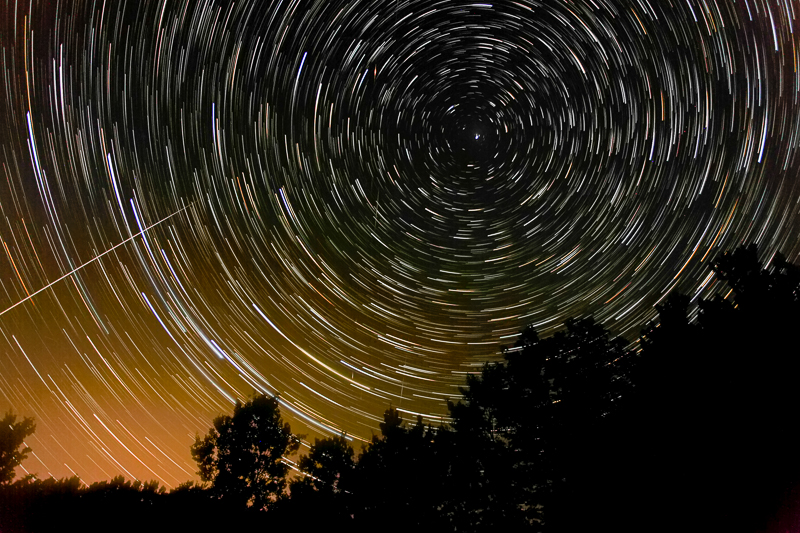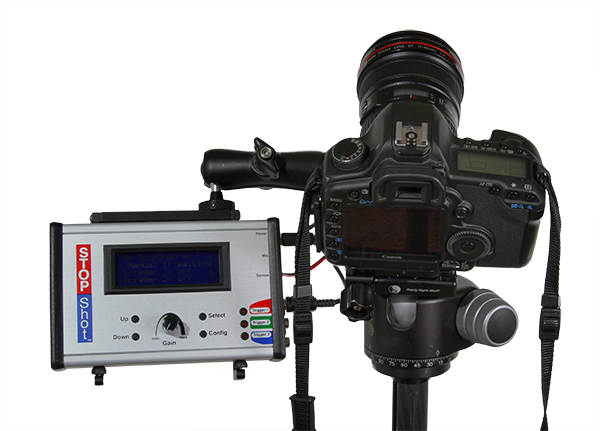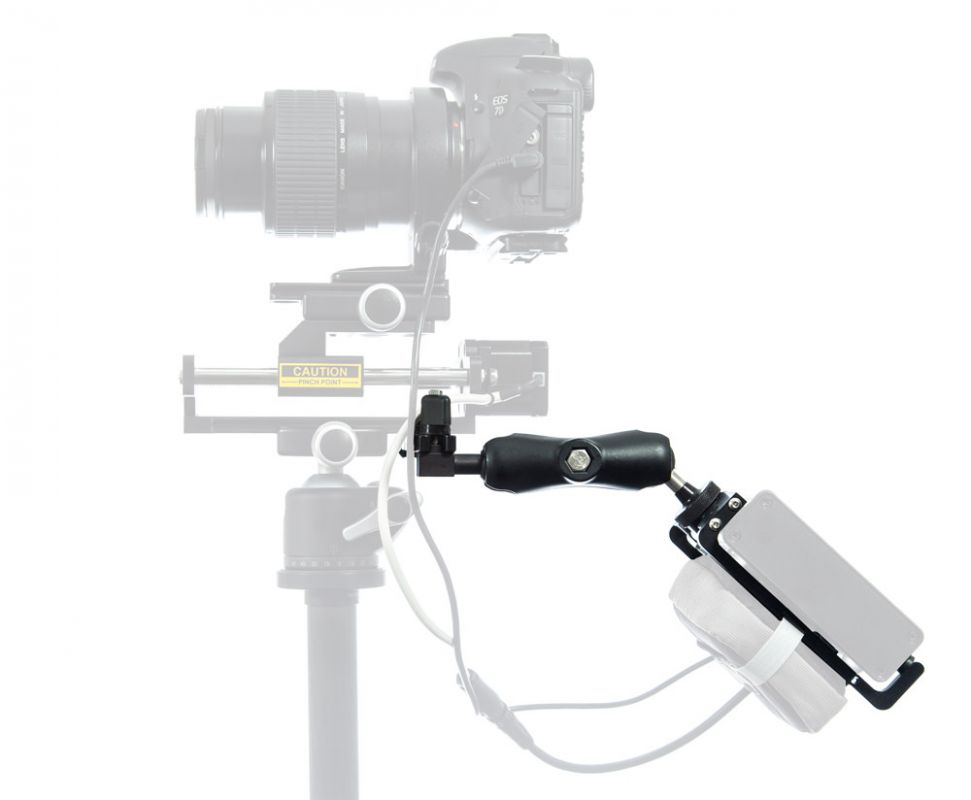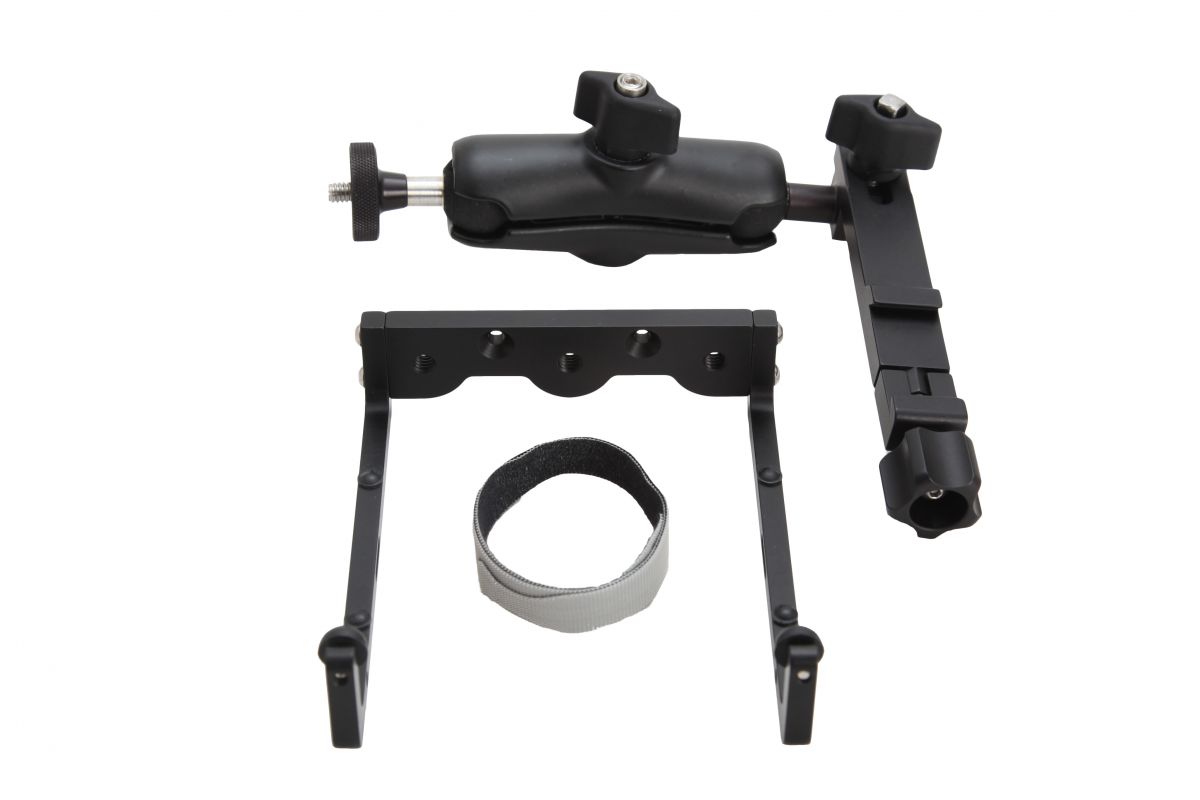Capture Star Trails with StopShot
Star Trails with StopShot

Star Trail photography can yield some very dramatic and sometimes surprising results. Before we get into how to use StopShot to capture Star trails here is a general overview of the process for those who have not seen this type of photography before. While it is possible to capture star trails with a single very long exposure, the method I use for Star Trail images is to capture many exposures of the night sky and combine them together using a stacking program like StarStaX. Using many shorter exposures allows you to capture much longer periods of time without sensor noise and over exposure of the foreground. It is essential the camera is mounted on a tripod. I generally use a pretty wide lens (17 - 40mm) but this depends on your composition.
If you are not using StopShot but still want to give this a try you can do that as long as your camera has an exposure time of at least 30 seconds and you have an external shutter release with a lock. Put your camera in manual mode with a 30 second exposure and then make certain the shooting mode is continuous. If you then lock the shutter button down on the remote your camera will take a shot every 30 seconds continuously. You will want to adjust the aperture and ISO so the exposure of the stars is what you are looking for. The wider the aperture and the higher the ISO the more starts will be exposed and the more trails will be exposed. A good place to start is ISO 400 and f/4. Take a few test shots and verify the results are what you expect.
While this type of photography can be performed with or without StopShot, using StopShot has several significant advantages. Using StopShot you can use exposure times much longer than the 30 seconds provided by the camera. This allows for a lower ISO setting and therefore lower noise and fewer hot pixels. The longer exposure time also allows you to stop down your lens a bit if needed to properly expose foreground. The image above was shot at ISO 100 and an exposure time of 1 minute and 30 seconds at f/4. Because of the better performance of the camera sensor at ISO 100 the image taken above took much less time in post processing to remove all of the hot pixels than an image taken even at ISO 400 and 30 seconds. Using StopShot also allows for less exposures (shutter cycles) and less post processing.
To get your camera ready for Star Trails using StopShot, set the camera mode to bulb, ISO to 100, and the shooting mode to single shot. You will need a shutter interface cable to allow StopShot to control the shutter on your camera. You can find all of our cables in the on-line store. The settings for StopShot can be found below.
Using the Manual mode of StopShot allows you to start and stop the collection of images with the press of a button. The number of pules can be set to give you a specific amount of exposure time or you can do what I did and set it very large and stop the system manually. 500 pulses is around 12.5 hours. The pulse 1 parameter is the amount of exposure time for each image, for the image above I set this to 1 minute 30 seconds but this will vary for your light level and the number of stars you want to show up in your final image. We live pretty far north so there is not a lot of light pollution here. The Toff parameter is the amount of time between shots. You will want to set this as short as possible while still having your camera respond reliably. For my Canon 5D MkII this time is 250mS. All of the rest of the settings in StopShot are default.
|
== StopShot==
|
||
|
>
|
Manual 1: | Waiting |
|
|
Trigger 2: | off |
|
|
Trigger 3: | off |
Trigger 1 Settings:
|
>
|
T1 Mode:
|
Manual |
|
|
# Pulse: | 500 |
|
|
Pulse 1: | 1m30sec |
|
|
Toff 1: | 250.0 ms |

The System
On the left is the setup used for capturing the Star Trail images. The StopShot controller and Li-Ion Battery are clamped to the Arca plate mounted on the base of the camera using our Controller Carrier Kit. There is a shutter cable from the StopShot controller to the camera to allow StopShot to control the camera shutter.



